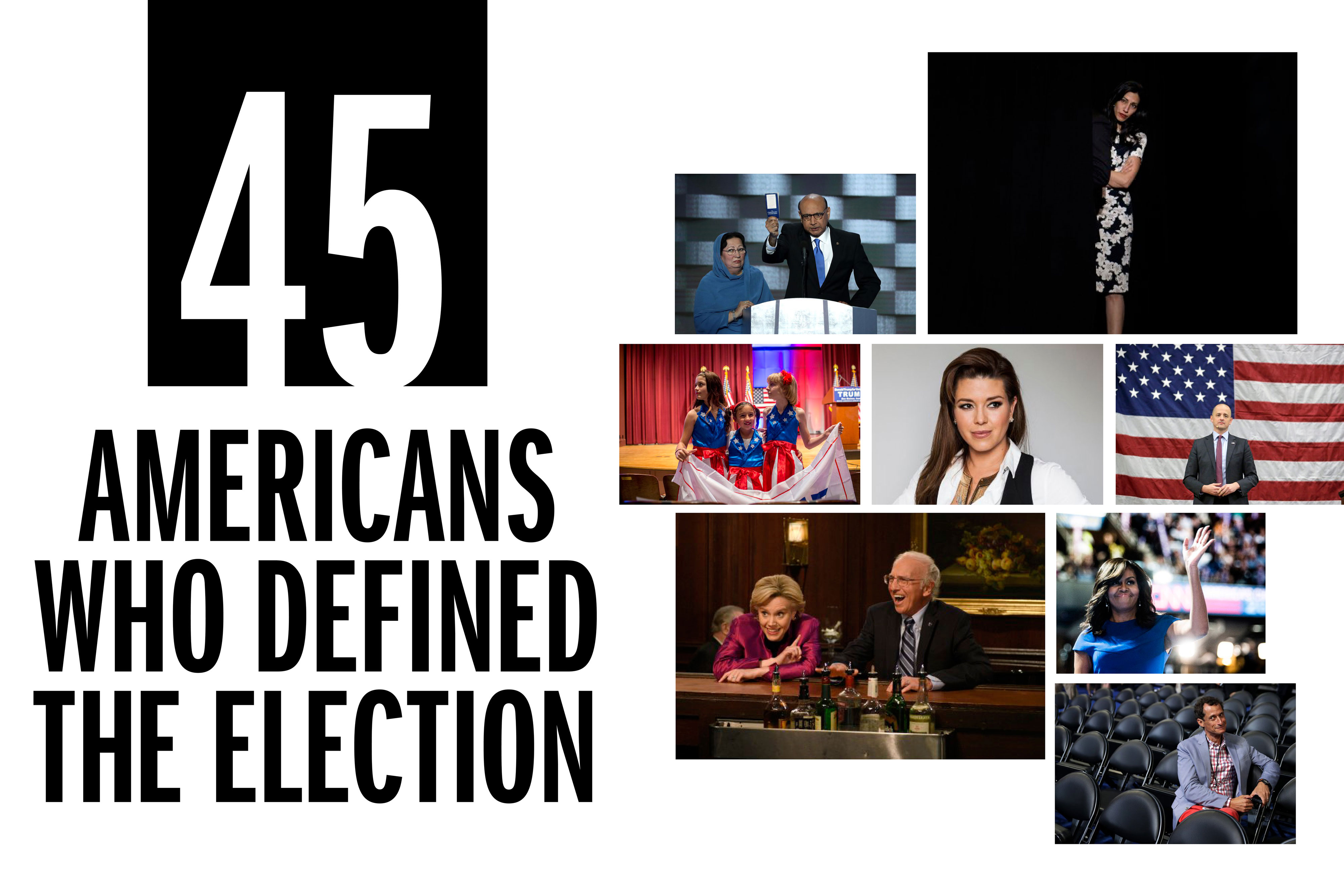
The race for the 45th president didn’t just involve Hillary Clinton and Donald Trump. Here’s a closer look at 45 everyday Americans who had their brief moment in the spotlight this election year.
USA Freedom Kids
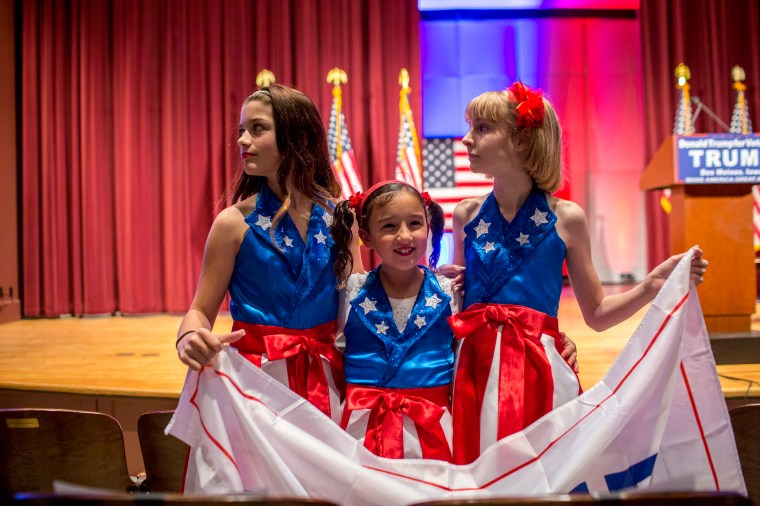
At a Trump rally on Jan. 13, a trio of preteen girls sang an original song with lyrics like “Cowardice, are you serious?” The USA Freedom Kids went viral, but impresario Jeff Popick, father of one of the girls, later sued the Trump campaign, claiming it didn’t follow through on promises for future performances and CD sales.
Megyn Kelly
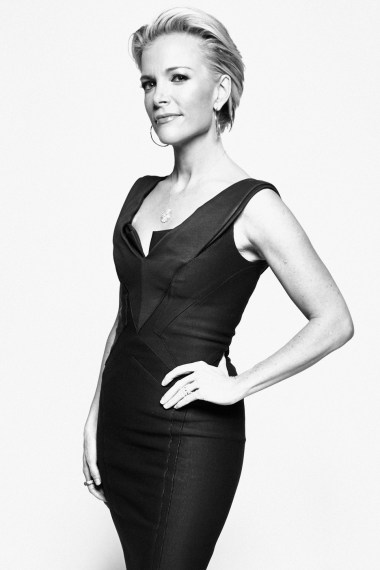
At the first Republican debate on Aug. 6, 2015, the Fox News anchor asked Trump about his past comments on women, leading him to later say that she had “blood coming out of her wherever.” The two seemed to reach a détente in May when he sat down for an hour-long interview.
Khizr and Ghazala Khan
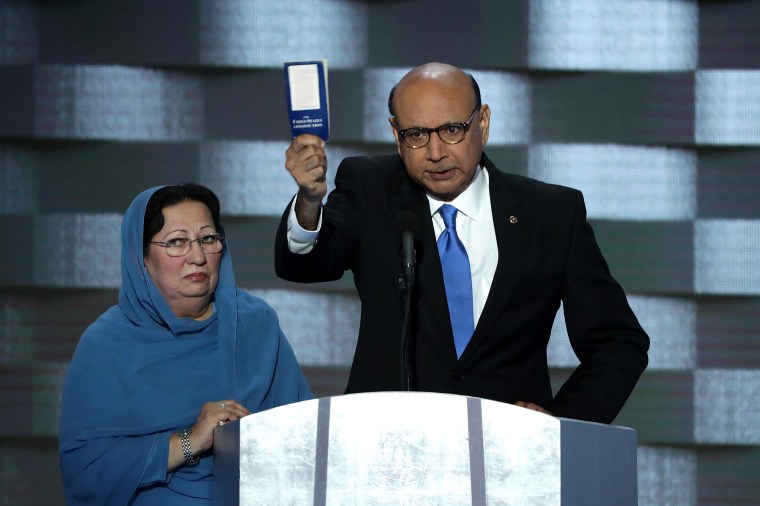
During the Democratic National Convention on July 28, the father of a fallen Muslim soldier gave an emotional speech criticizing Trump. Trump responded by bashing the Khans. Sales of pocket constitutions spiked on Amazon and strangers laid flowers on his son’s gravesite. Khan later starred in a Clinton ad.
Jorge Ramos
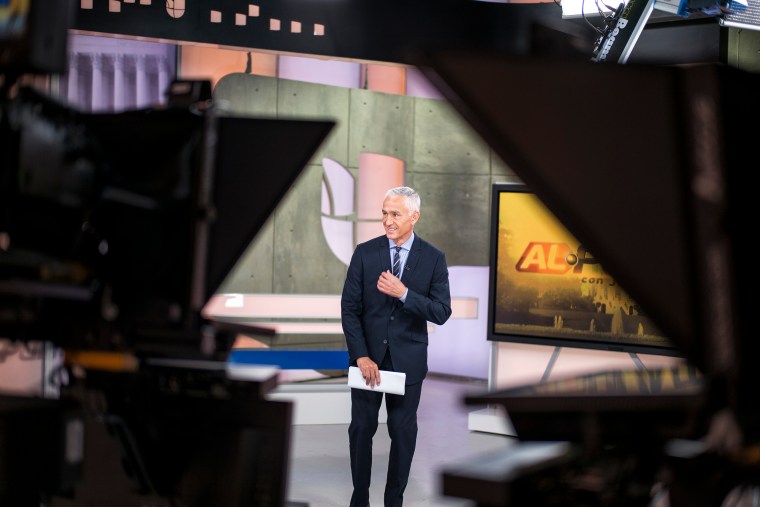
When the most important journalist in Spanish-speaking television tried to ask Trump about his immigration plan at an Iowa rally on Aug. 25, 2015, Trump told him to “go back to Univision” and had him escorted out. He was let back in about 10 minutes later but the questioning remained confrontational.
Mitt Romney
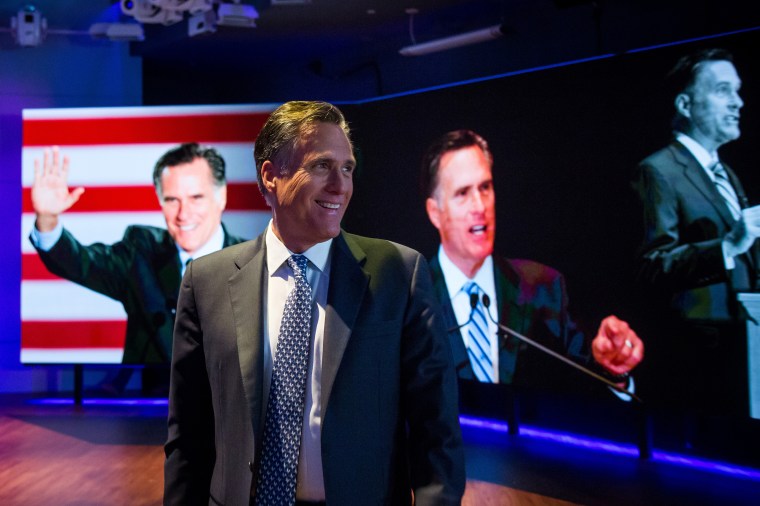
Former Republican presidential nominee Mitt Romney was the most high-profile member of the Never Trump movement, criticizing him as “a con man” in a speech at the University of Utah on March 3 and later calling on him to release his tax returns. Trump returned fire, calling him a “stone cold loser.”
Former Miss Universe Alicia Machado
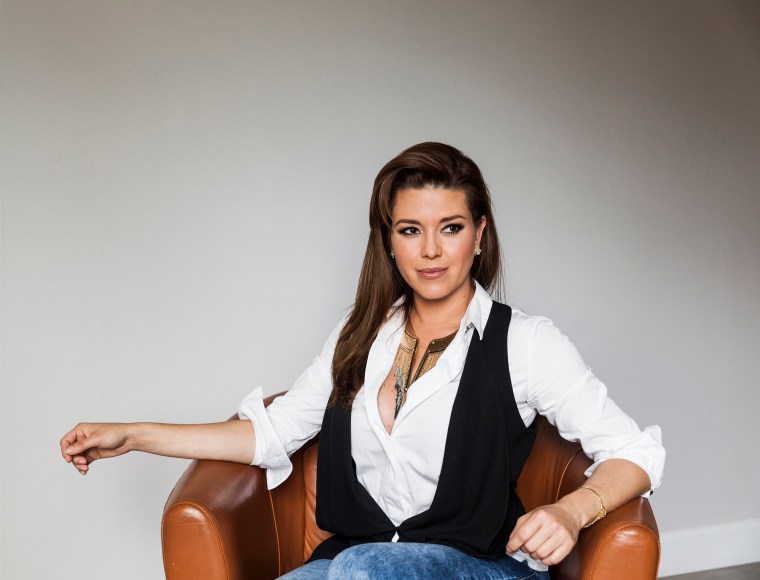
The Venezuelan-born model and 1996 Miss Universe spoke out about Trump’s treatment of her after she gained weight. (She says Trump called her “Miss Piggy.”) She became a U.S. citizen so she could vote against Trump. She made the news again when Clinton mentioned her during the first debate, prompting Trump the next morning to again criticize her past weight gain and claim (inaccurately) that she had a sex tape.
Judge Gonzalo Curiel
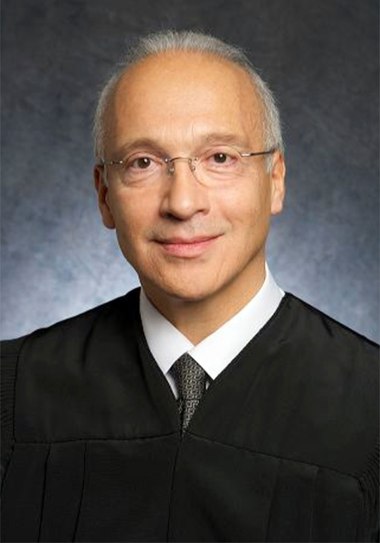
At a rally on May 27, Trump criticized the federal judge hearing a class-action suit against Trump University, calling him “very hostile” and arguing that he could not be fair because his parents were born in Mexico. Curiel, who was born in the United States, remained silent.
Elizabeth Warren
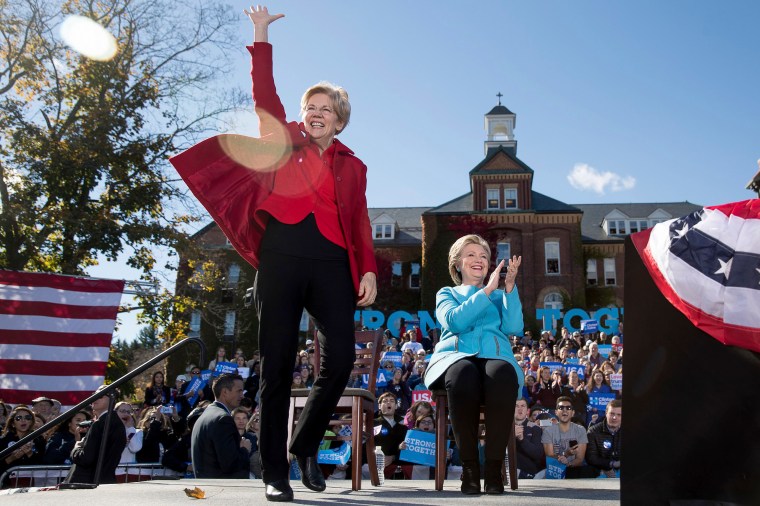
The popular Massachusetts senator disappointed progressives when she decided not to run for the Democratic nomination and stayed on the sidelines of the Clinton-Sanders battle. But she proved able at provoking Trump, who nicknamed her “Pocahontas” due to an old controversy over whether she had claimed Native American heritage.
Rev. Faith Green Timmons
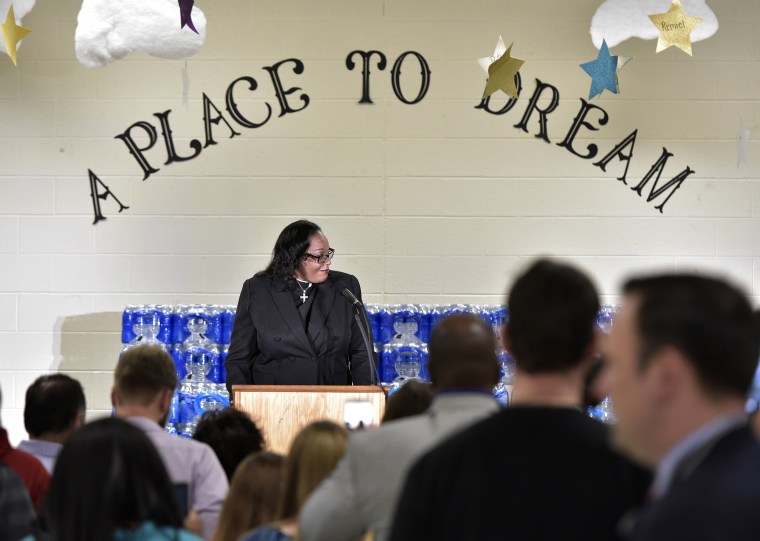
As part of his outreach to African American voters, Trump visited the Bethel United Methodist Church in Flint, Mich., on Sept. 14, but the church’s pastor cut him off when he started to criticize Clinton in his remarks, saying he was not invited to give a political speech. He later attacked her, saying she was a “nervous mess” during the event.
Evan McMullin
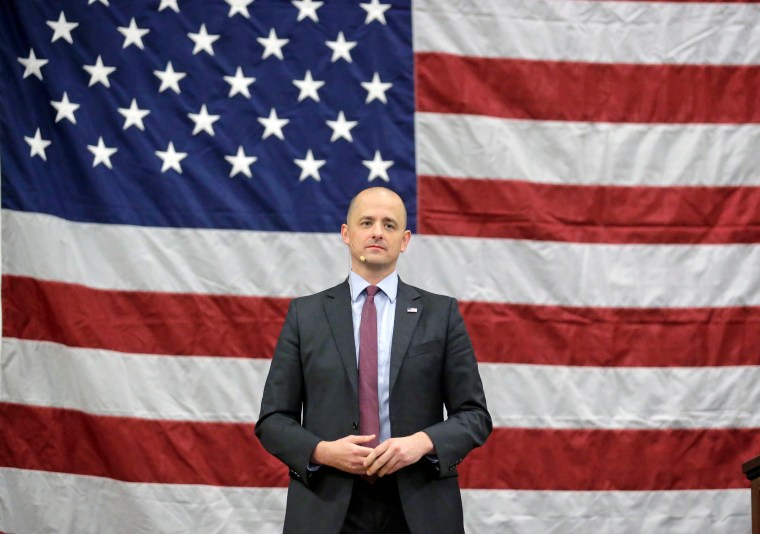
The Never Trump movement finally found its protest candidate in Evan McMullin, a former CIA officer and chief policy director for the House Republican Conference who announced he would run as an independent on Aug. 8.
Roger Stone
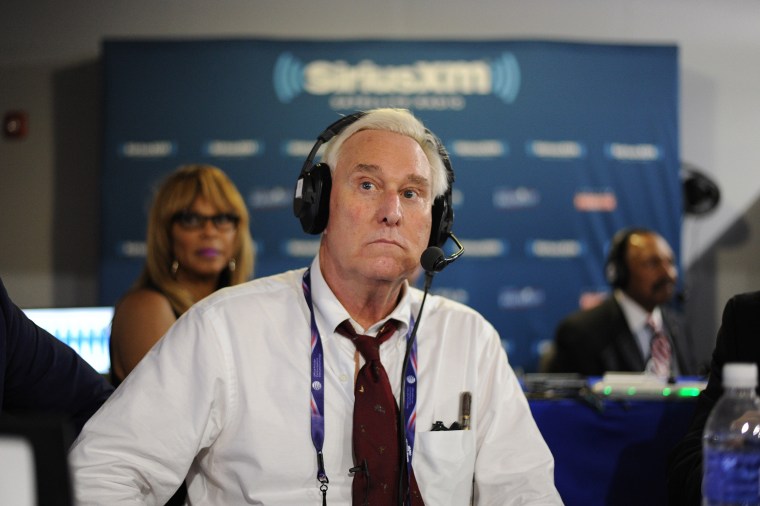
A colorful—and controversial—Republican operative, the former Richard Nixon staffer had been talking with Trump about a presidential run since at least 1988 and ran a “Draft Trump” website in 2012. On Aug. 8, 2015, Trump and Stone formally parted ways over his fight with Megyn Kelly, though he remained an informal adviser, including running an effort at poll-watching on Election Night.
Peter Thiel
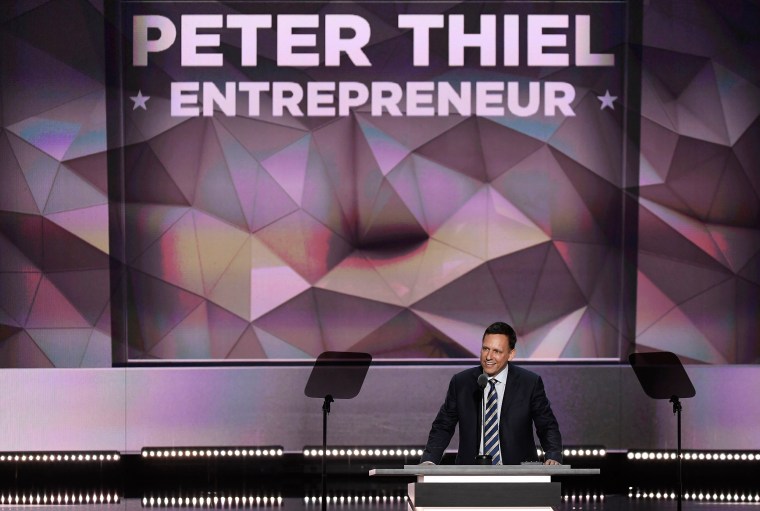
A founder of PayPal and early investor in Facebook, the Silicon Valley billionaire became the first openly gay Republican to speak in 16 years at a GOP convention. A libertarian, Thiel had previously supported Mitt Romney, Ron Paul and Carly Fiorina.
Newt Gingrich
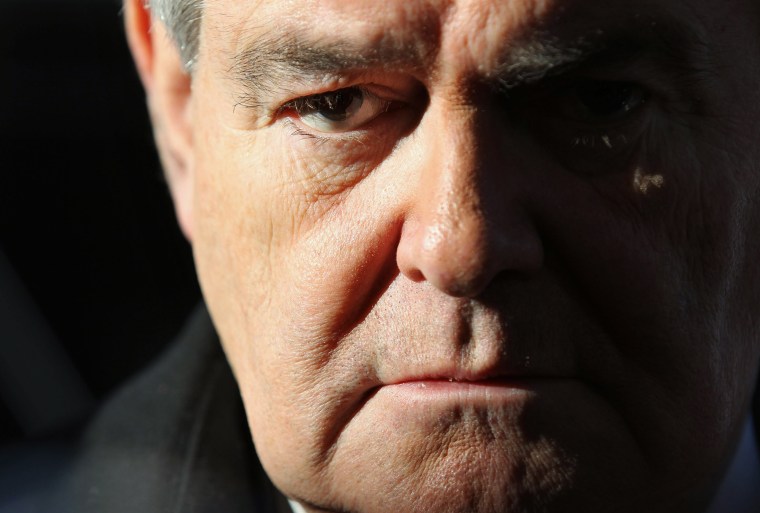
The former Republican Speaker of the House, historical fiction author and failed presidential candidate was an early Trump backer and regular spokesman who made it to the nominee’s final three picks for running mate, although he wondered if America was ready for a “two-pirate ticket.” He often disagreed with his pal over some of his more outlandish behaviors.
Corey Lewandowski
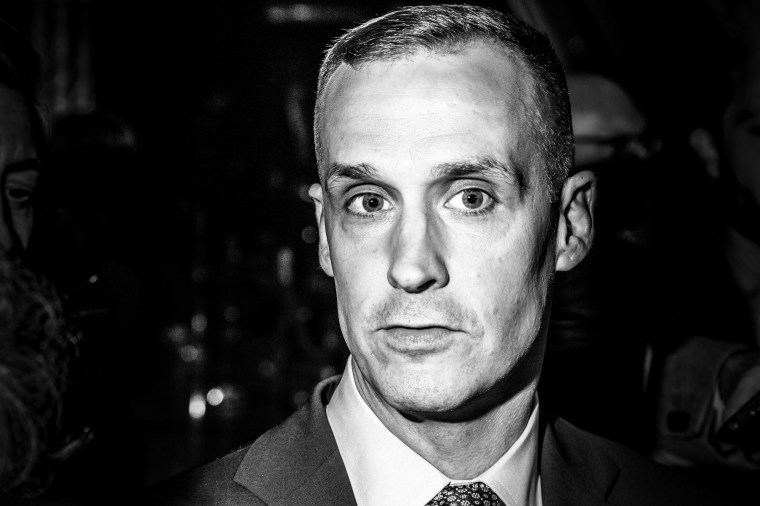
Trump’s first campaign manager was a minor Republican operative with no experience running a national campaign. Trump stood by him when a reporter accused him of manhandling her, but he and the campaign split in June as the general election fight got underway. He then became a commentator for CNN.
Paul Manafort
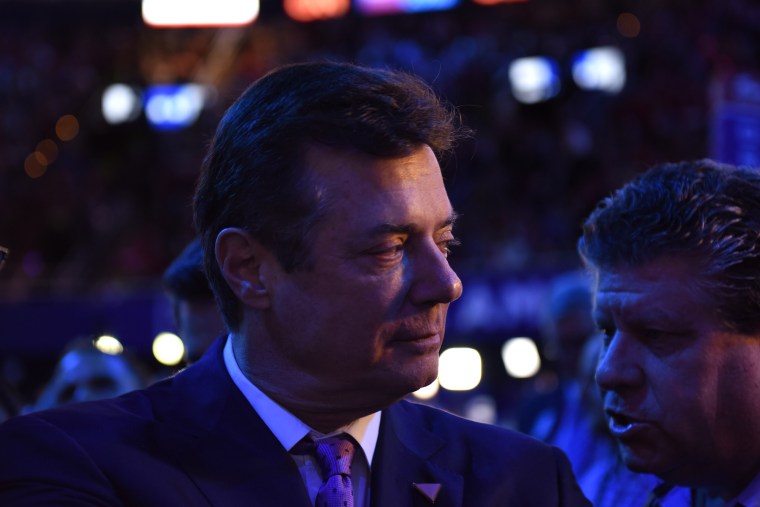
A national campaign operative in the 1970s and ’80s and lobbyist for foreign governments in D.C., he became chairman of the Trump campaign in June, then resigned during a staff shakeup in August amid questions about his links to Ukraine’s former pro-Russia regime.
Stephen Bannon
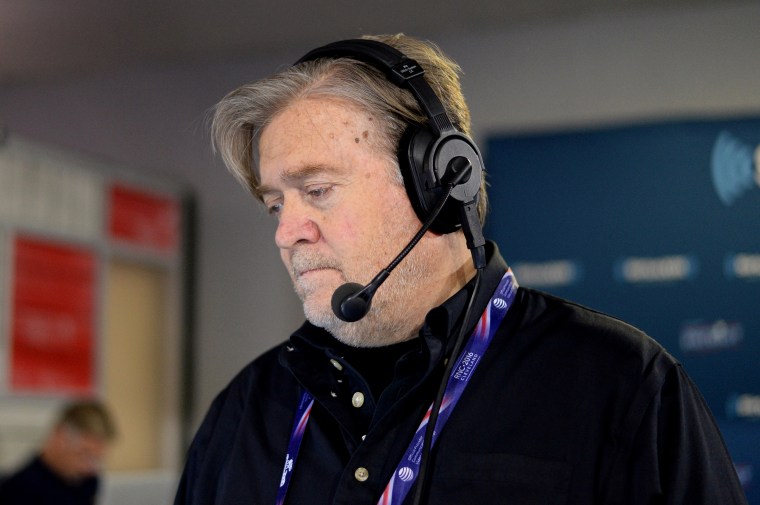
The head of the conservative Trump-backing Breitbart News website was named CEO of his campaign in a staff shakeup in August of 2016. A campaign novice, his role was unclear from the outside, but the anti-Establishment tone of Breitbart was a sign that he would be a strong voice to let Trump be Trump.
Kellyanne Conway

The Republican strategist and pollster became Trump’s campaign manager in August of 2016 when Manafort left, convincing the nominee to use the teleprompter more for scripted policy speeches. She also appeared frequently as a top spokeswoman on television, an unusual move for a campaign manager, who is typically more focused on behind-the-scenes efforts.
Dr. Mehmet Oz
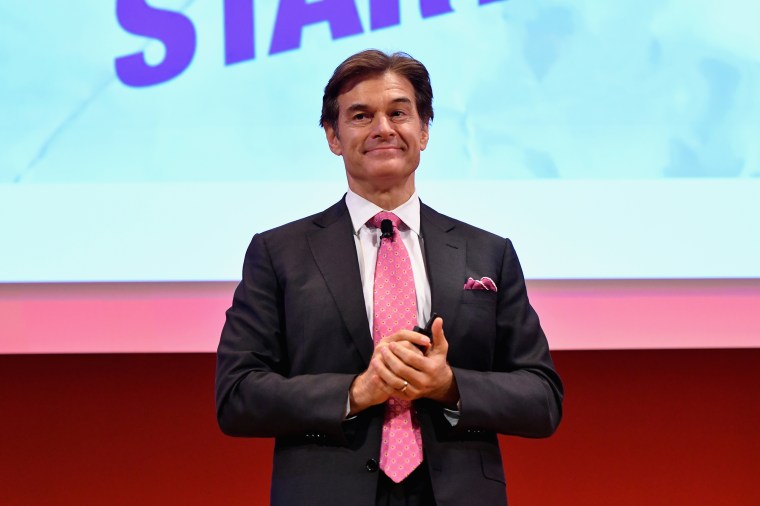
Facing questions about his own health records as he sought to make Clinton’s an issue, Trump appeared on an episode of the Dr. Oz Show that aired on Sept. 15 to discuss the results of a recent physical, including, oddly, his testosterone score. In 2014, Oz was grilled by Congress for promoting “miracle” weight-loss products on his show.
Scott Baio
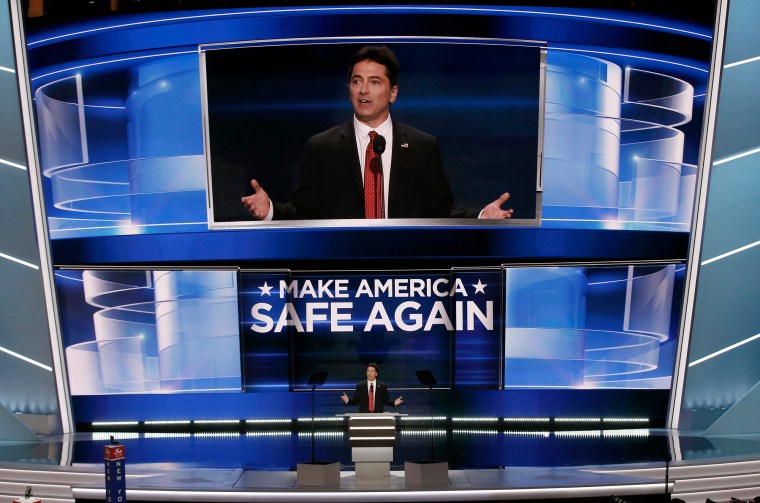
In March, the former star of “Happy Days” and “Charles in Charge” became an early celebrity backer of Trump. He was rewarded with a speaking slot at the Republican national convention, although he courted controversy before the speech by sharing a meme on Twitter that featured Clinton and an offensive term for women.
Joe Biden
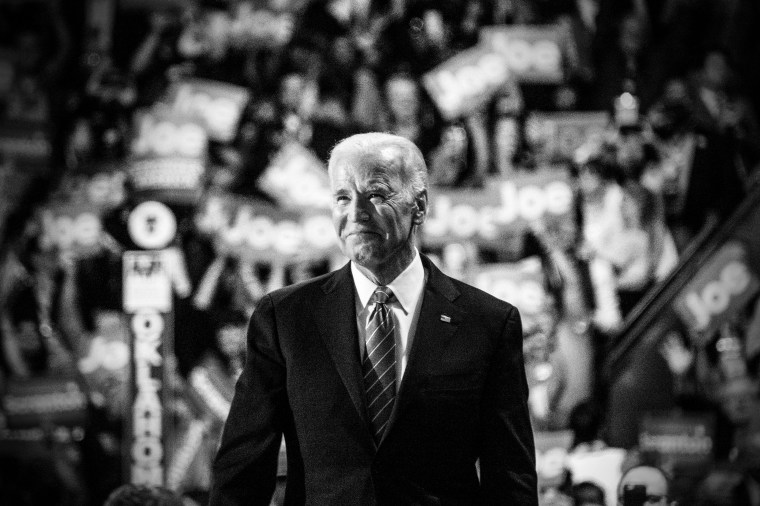
After weeks of public agonizing, the Vice President announced on Oct. 21, 2015, that he had decided against a third bid for the presidency. Supporters had planted the story that the late Beau Biden had wanted the man he called “Pop” to run. Instead, he chose to lobby for a federal “moon shot” to fight cancer.
Killer Mike
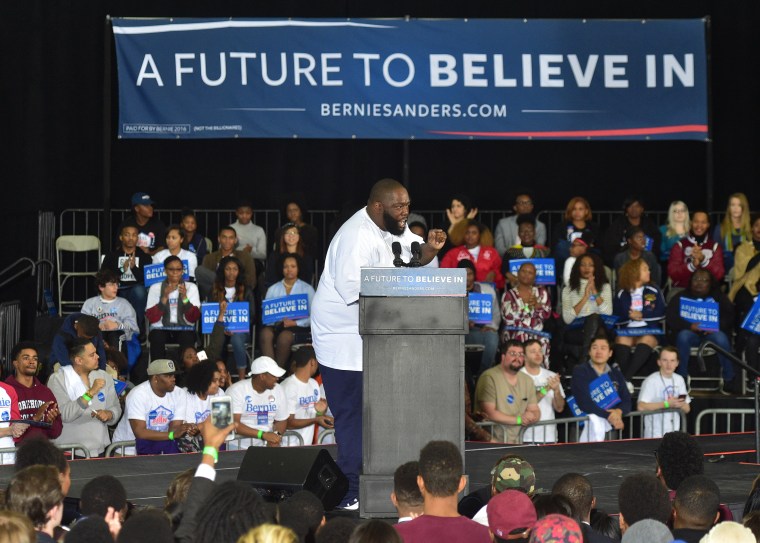
A link to black voters when Bernie Sanders had few supporters of color, the hip-hop artist gave the Vermont Senator badly needed street cred. Mike did a barbershop interview with Sanders, introduced him at rallies and rallied for him at historically black colleges and universities. He also got into trouble when he quoted a woman critical of Hillary Clinton, saying “a uterus doesn’t qualify you to be President.”
Oliver Jack Carter Lomas-Davis
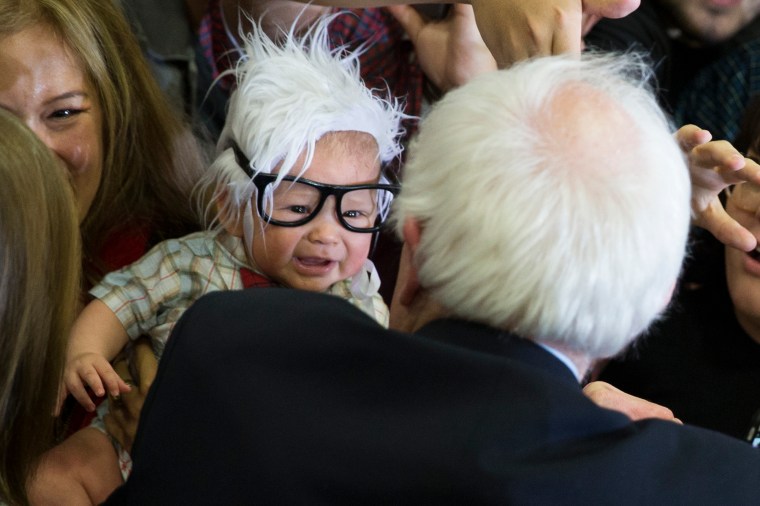
Wearing a white wig, glasses and a “Bernie 2016” button, the so-called “Bernie Baby” became internet famous after a photo of him with Sanders at a Feb. 14 rally went viral. He died two weeks later of Sudden Infant Death Syndrome at the age of four months.
Larry David
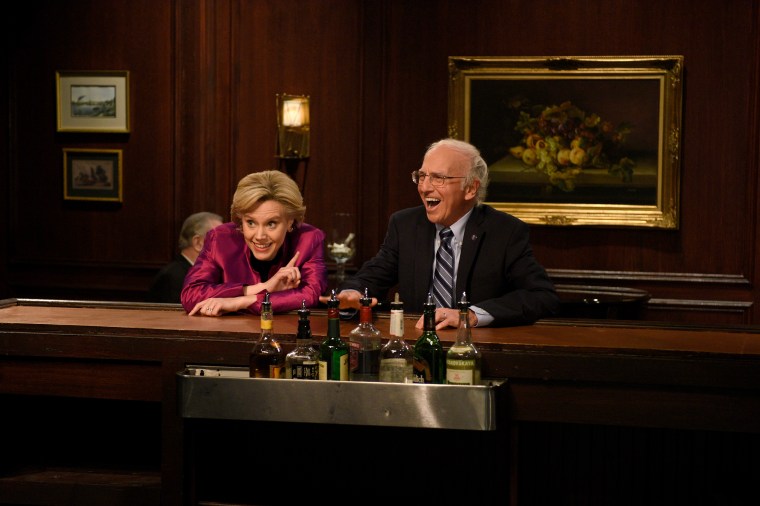
The co-creator of “Seinfeld” and star of HBO’s “Curb Your Enthusiasm” shared Vermont Sen. Bernie Sanders’ mannerisms. He had several memorable turns as Sanders on “Saturday Night Live” including one opposite Sanders himself on Feb. 7.
Debbie Wasserman Schultz
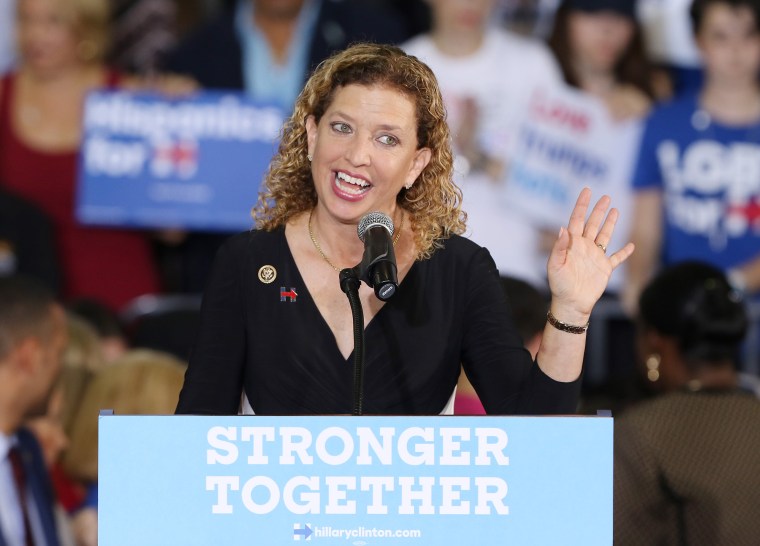
Bernie Sanders and his supporters reviled the Democratic Party Chairwoman from South Florida, accusing her of rigging the Democratic primary in favor of Hillary Clinton. Wasserman Schultz’s name was chanted angrily at rallies, Sanders himself called for her ouster, and she alienated even her allies. She resigned from her post in July after a Russian hack of internal party emails.
Michelle Obama
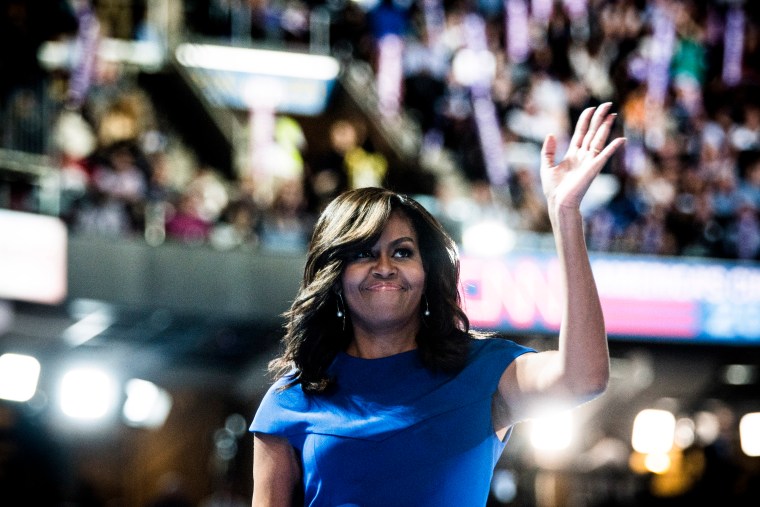
First Lady Michelle Obama has become one of the most passionate anti-Trump surrogates deployed by the Clinton campaign. After delivering a rousing speech at the Democratic National Convention, Mrs. Obama has been sent to college campuses across the country to rally young people behind the Democratic nominee, giving another memorable speech about her reaction to Donald Trump’s Access Hollywood tape.
Lena Dunham

The co-creator of HBO’s Girls and the feminist newsletter Lenny quickly became the millennial voice of Hillary Clinton’s campaign for the White House. She has stumped both for and with Clinton on the campaign trail, in her newsletter, and in other media. At the Democratic National Convention, Dunham appeared onstage with fellow millennial America Ferrera in an appeal to young women voters and she later starred in an online video for Clinton.
Katy Perry
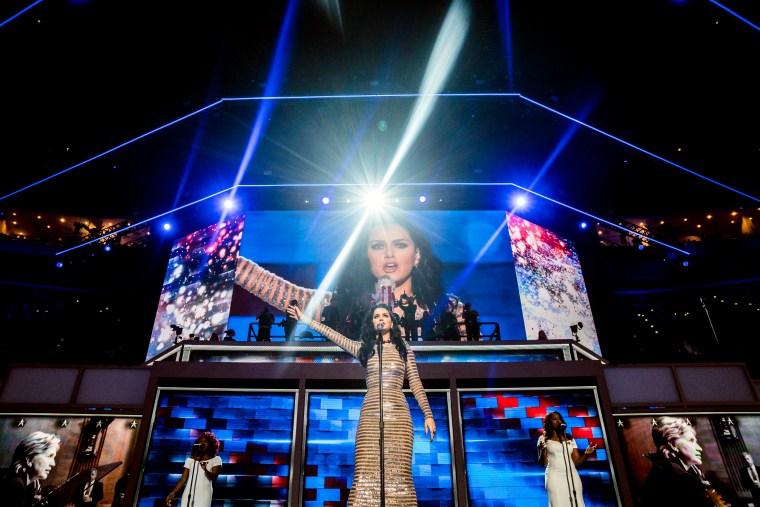
In October of 2015, the pop singer joined Clinton in Iowa. She performed two songs and gave a short speech at the Democratic National Convention, telling the crowd they can be “as powerful as any NRA lobbyist” by voting. Later, she “got naked” for a short video by Funny or Die encouraging people to register to vote.
Anthony Weiner
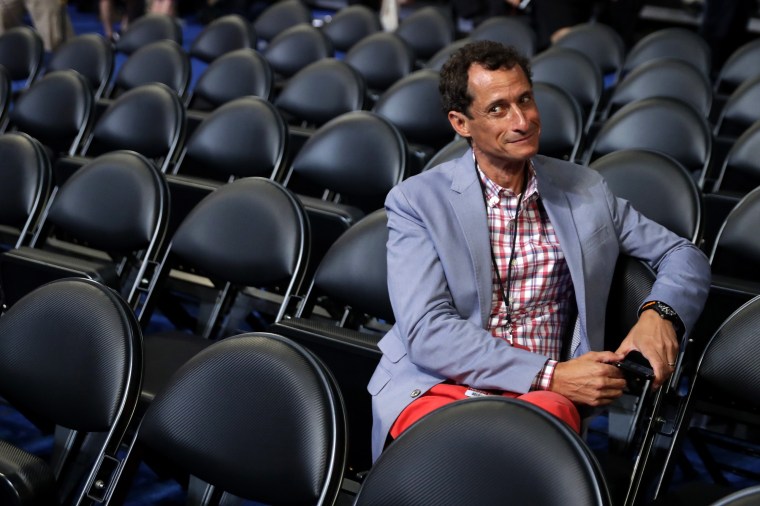
The disgraced former congressman, failed mayoral candidate and husband of Clinton adviser Huma Abedin kept his head down for most of the presidential election. But when his fondness for sending lewd photos shot once again into the news with a New York Post expose in August, Abedin finally separated from him. Weiner resurfaced again in October when an FBI investigation into his photos revealed emails on his computer that might be of interest in the investigation into Clinton’s private email server.
Huma Abedin
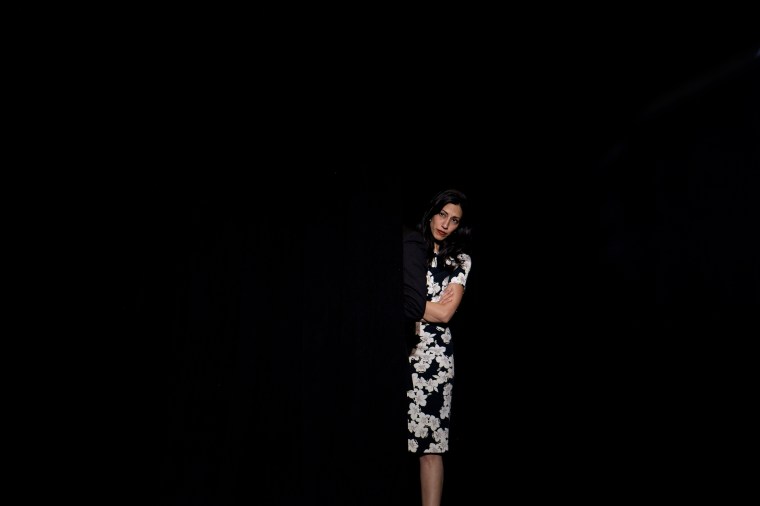
One of Clinton’s most trusted advisers, she typically remained behind the scenes, enjoying unrivaled power inside Clinton’s orbit. The release of Clinton’s emails from her tenure as Secretary of State and sexting scandals involving her husband, former Rep. Anthony Weiner, brought her unwanted attention.
Hannah Tandy
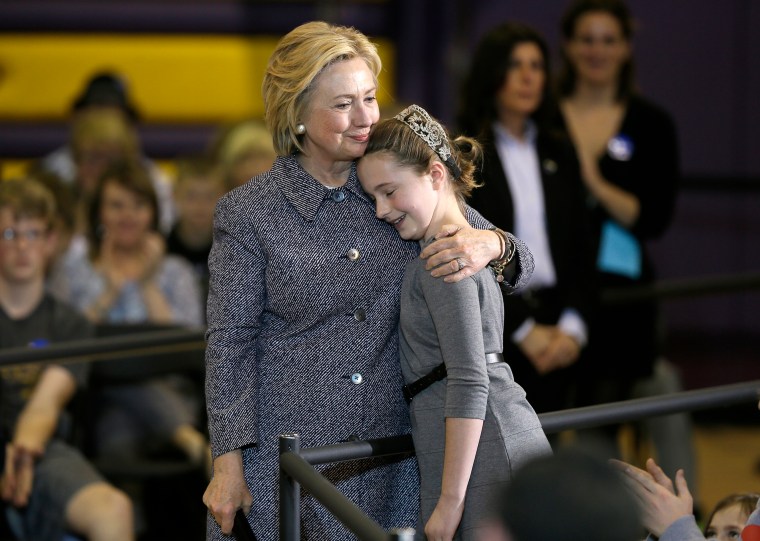
In December, the 10-year-old Iowa girl asked Clinton what she would do about bullying at a town hall event. Clinton responded by giving her a hug and pivoting to say “we shouldn’t let anybody bully his way into the presidency.” Trump called the event “staged” and “pathetic” on Twitter, leading Hannah’s mother to hit back at Trump.
Karla Ortiz
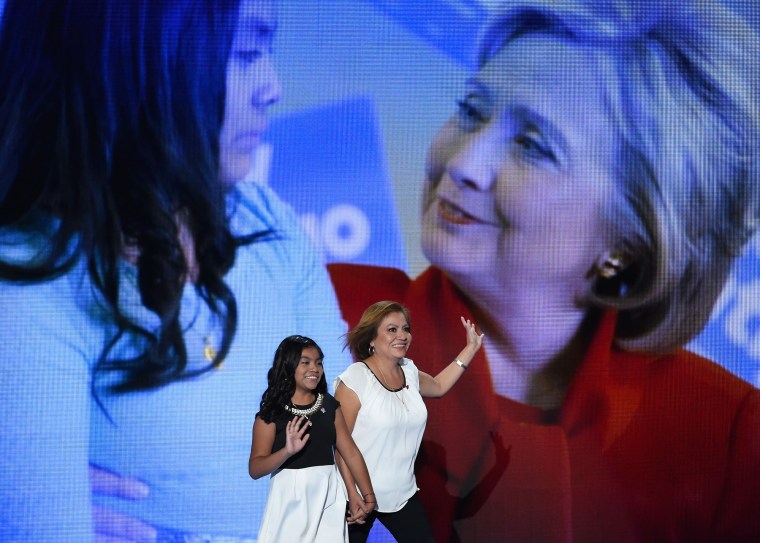
In February, the 10-year-old Nevada girl told Clinton she was scared her parents would be deported at an event in Las Vegas. Clinton used footage of the moment in an ad that aired in the state ahead of its caucuses, and Ortiz and her mother later spoke at the Democratic National Convention.
Rachel Platten
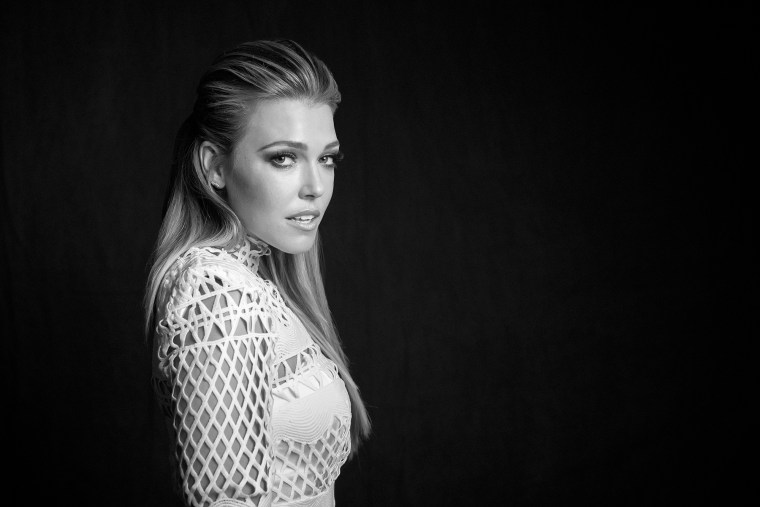
The singer-songwriter didn’t need help, as her peppy “Fight Song” already hit Billboard’s top 10 in 2015, but Clinton’s decision to play it—endlessly—at campaign rallies took it to a whole new level. Platten even starred in a celebrity-packed a cappella version played at the Democratic convention on July 27.
Rafael Cruz
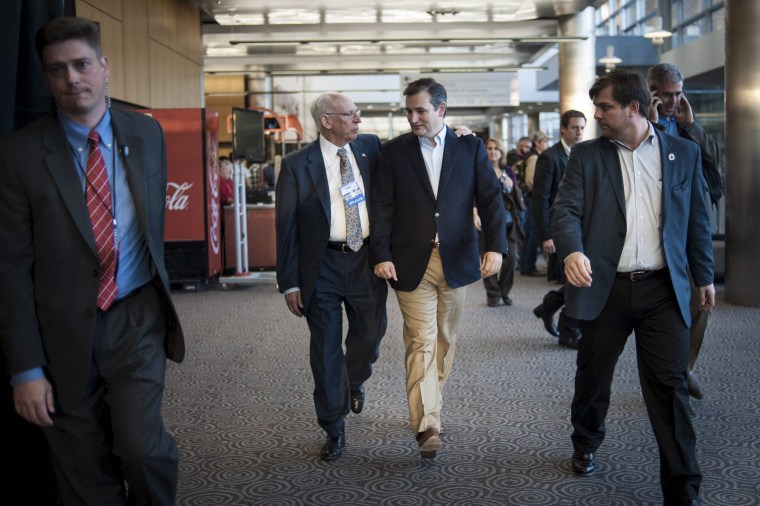
An evangelical preacher, the father of Texas Sen. Ted Cruz was a popular speaker on behalf of his son’s presidential bid. In April, Trump brought up a National Enquirer story that claimed—with little proof—that Cruz had been “with Lee Harvey Oswald” before JFK was shot. The Cruz campaign called it “garbage,” while Ted Cruz joked that his dad was also “secretly Elvis.”
Mark Cuban
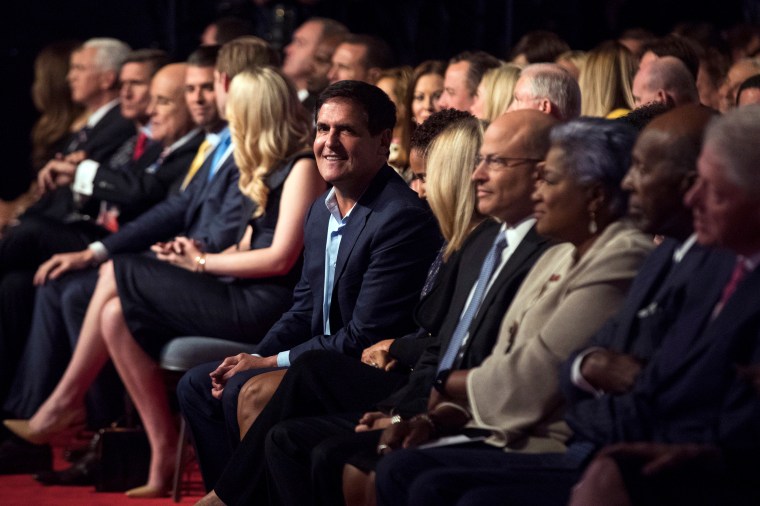
A billionaire who dabbles in reality TV, he became a foil for Trump during the election, criticizing him on such issues as his tax returns and his policies. He offered to give $10 million to charity if Trump sat for a one-on-one interview, said he’d consider being Clinton’s running mate and attended the first presidential debate. Clinton joined the trolling, calling him “an actual billionaire.”
Don King
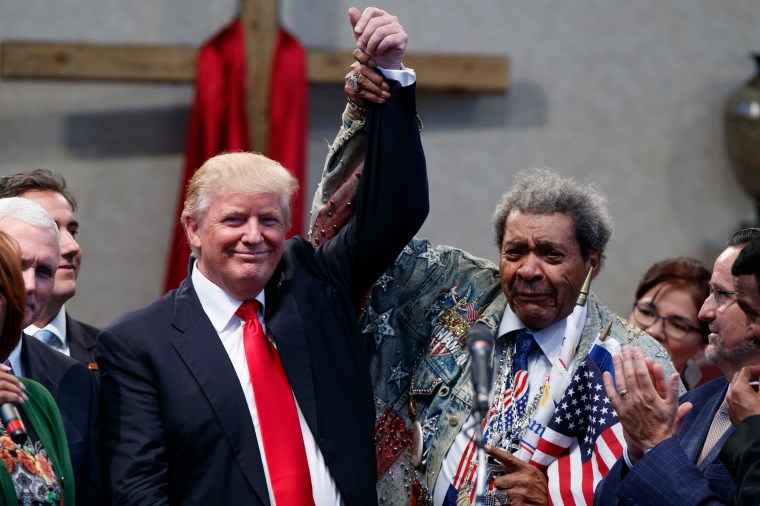
Trump wanted the controversial boxing promoter to speak at the Republican National Convention, but GOP head Reince Priebus barred it based on King’s manslaughter conviction. In September, King accidentally used the n-word while introducing Trump at an African-American church in Cleveland. He also spoke on Trump’s behalf in the “spin room” after the first debate.
Omarosa Manigault
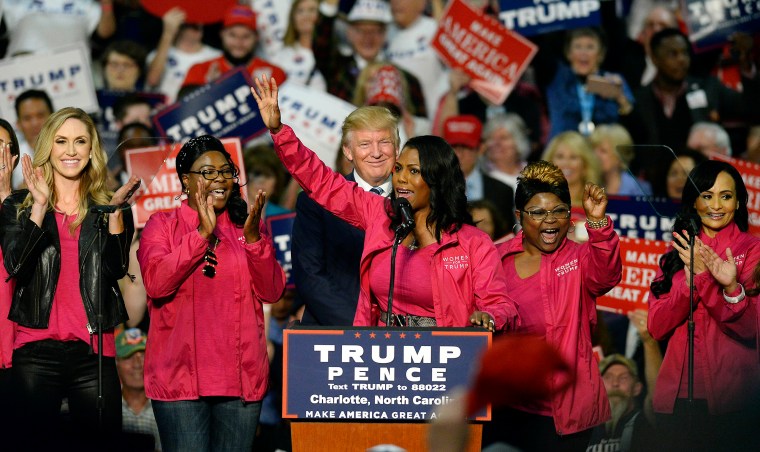
The former Apprentice contestant, whose dramatic turn helped her land on a list of top reality TV villains, was one of Trump’s regular unoffiical supporters booked on TV. She now works as a pastor.
George H.W. Bush
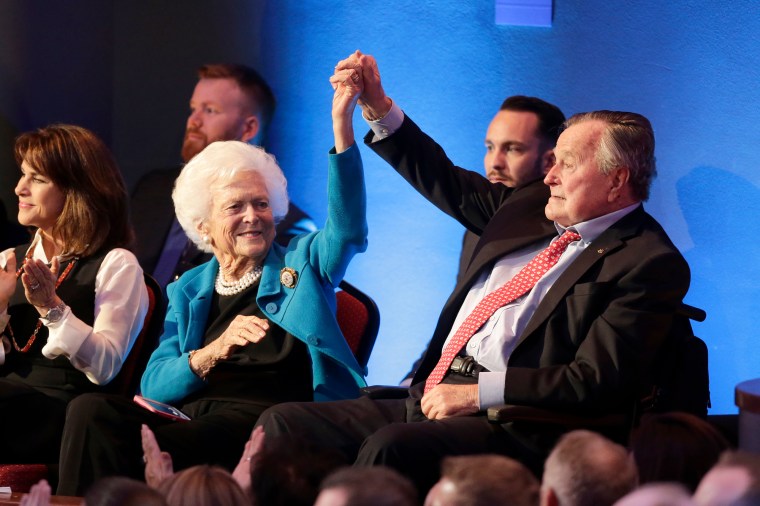
The former Republican President has kept a low profile after leaving the White House in 1993, but he made news when Robert F. Kennedy’s daughter wrote on Facebook that he told her he would be voting for Hillary Clinton. His spokesman declined to refute the claim, noting that Bush would be casting his vote as a private citizen.
Michael Flynn
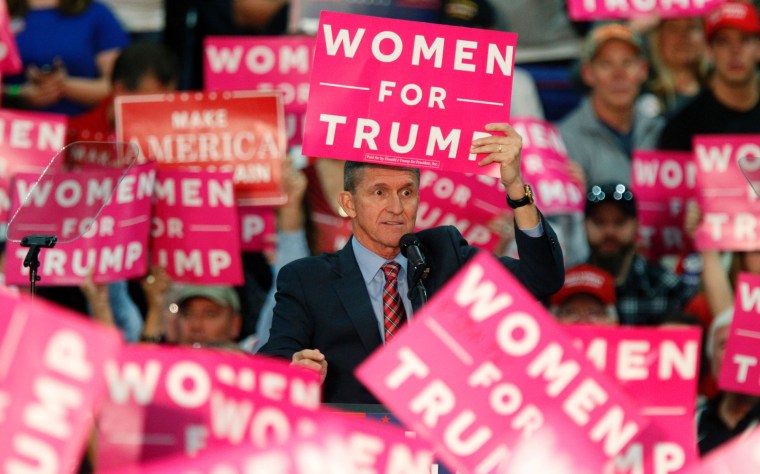
The retired lieutenant general became Trump’s most visible veteran backer and was briefly considered as a potential running mate for the Republican nominee. He hurt his chances when he stumbled on social issues in an interview. He gave a fiery address at the Republican National Convention and helped Trump prepare for his debates.
Erick Erickson
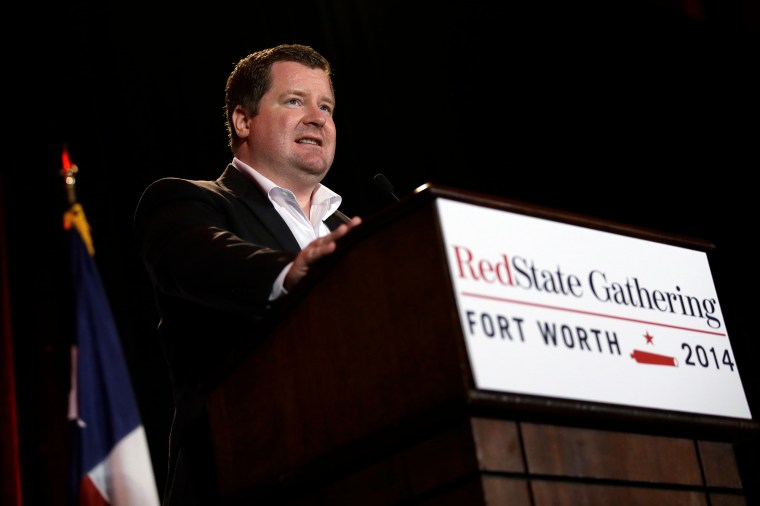
An influential conservative blogger, former CNN contributor and managing editor of the Red State website, he disinvited Trump from a speaking engagement at his annual conference after his remarks on Megyn Kelly. Trump hit back, calling him “a major sleaze and buffoon,” and Erickson remained a skeptic. In September, he wrote that he couldn’t vote for either Trump or Clinton.
Lincoln Chafee
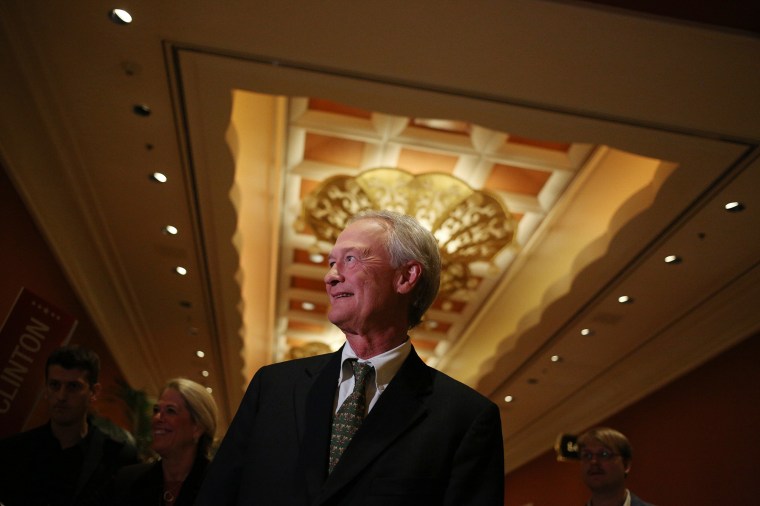
The former Rhode Island senator and governor, a Republican-turned-Independent-turned Democrat, he launched a quixotic campaign for the Democratic presidential nomination that was ill-built from the start. His most memorable moments included calling for the metric system and saying at a debate that he didn’t really know what he was doing when he voted to repeal the Glass-Steagall Act.
Merrick Garland
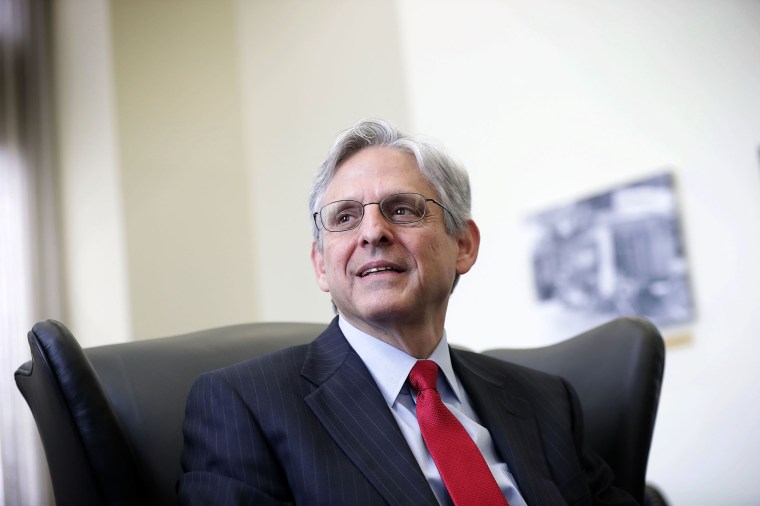
The U.S. Appeals Court judge wasn’t supposed to be an election issue. When President Obama picked him as a replacement for the late Supreme Court Justice Antonin Scalia, he hoped for a quick confirmation. Instead, Senate Republicans held the seat open and made it an election issue.
Sarah Silverman
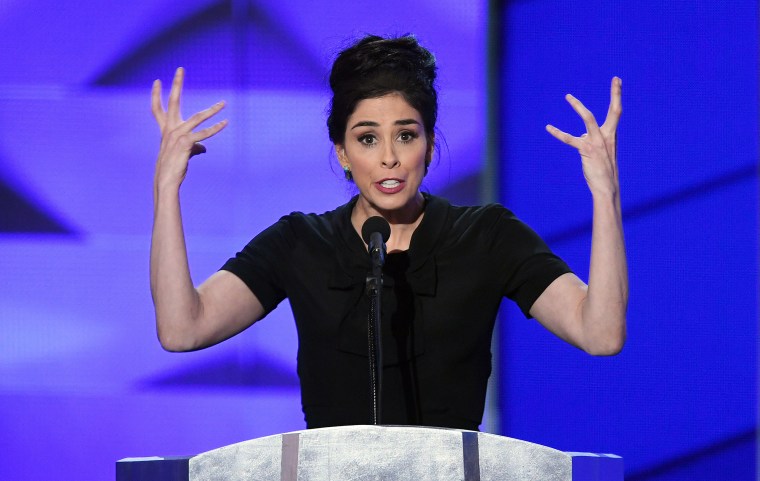
The off-color comedian joined Sen. Al Franken to introduce Paul Simon at the Democratic National Convention, but when a delay left them with time to kill, she filled it by telling off supporters of Vermont Sen. Bernie Sanders. “Can I just say to the Bernie or Bust people: You’re being ridiculous,” she said.
John McCain
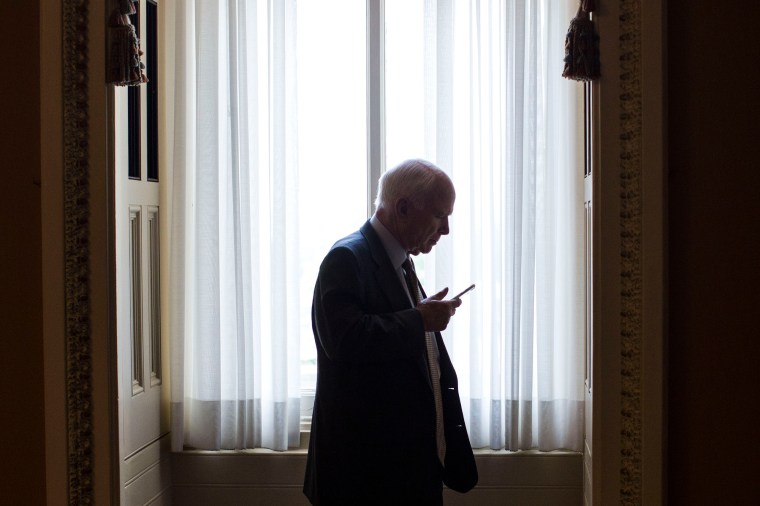
Pundits thought Trump’s comments on Arizona Sen. John McCain in July of 2015—”I like people who weren’t captured”—would hurt his campaign, especially when Trump refused to back down against the famed prisoner of war. But Trump survived the brouhaha, and McCain begrudgingly endorsed him—and then unendorsed him—as he fought for his own re-election.
Ken Bone
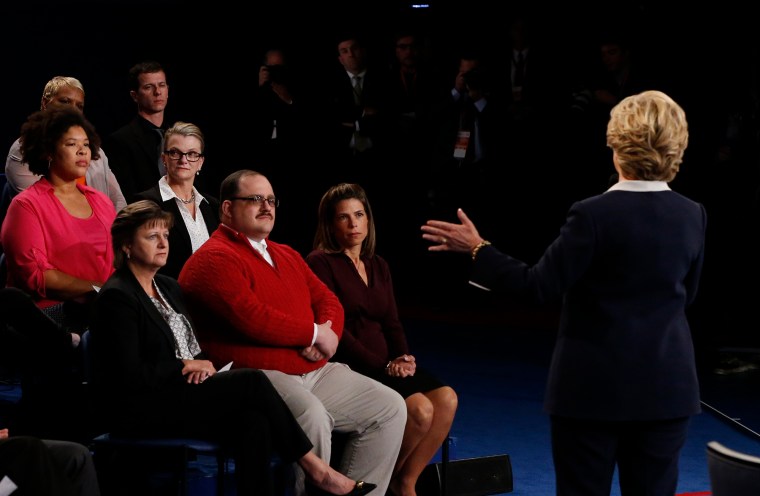
When he stood up to ask a question about energy policy at the second presidential debate, Ken Bone became an instant internet sensation. There was something compelling about the ordinariness of the man with a mustache and a red sweater asking the kind of question we used to hear at debates before all of this year’s craziness. The red sweater sold out on Amazon, and Bone was invited to talk with Jimmy Kimmel.
Billy Bush
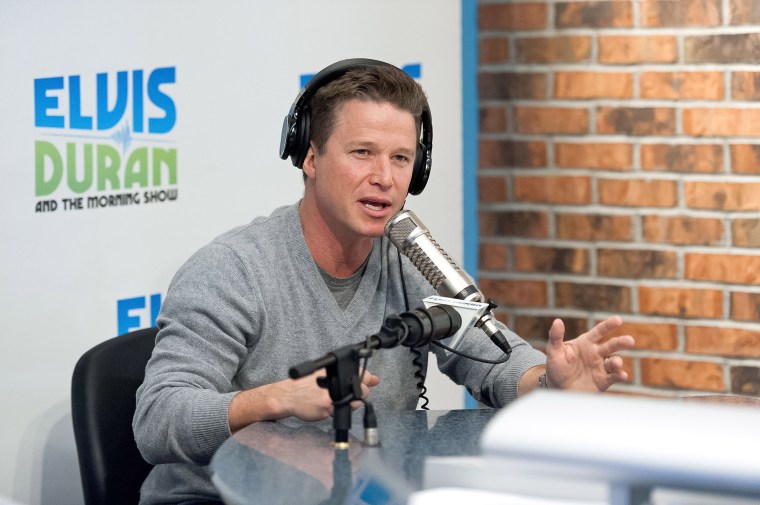
In the strangest twist yet, the former Access Hollywood anchor (and nephew of former President George H.W. Bush) turned out to be the most influential member of the Bush dynasty in the 2016 election when an old video leaked of him chatting with Trump about women in lewd and uncomfortable ways. Bush was suspended from his current job at The Today Show and apologized in a statement for his role in the video.
